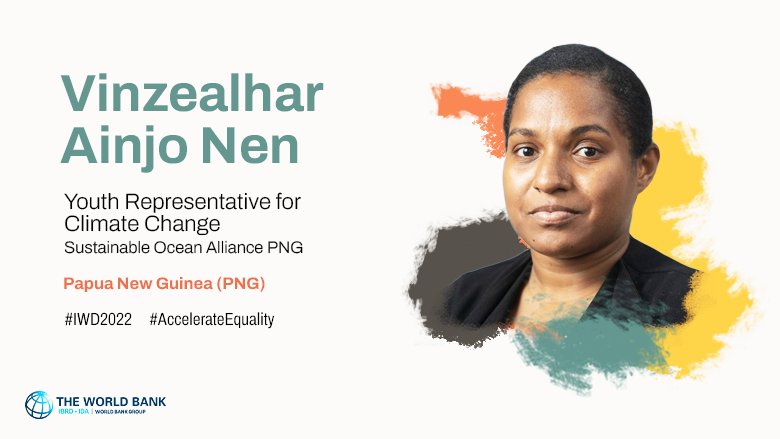I was nine years old when my teacher told me how waves crashed right into her family home, and she had to evacuate her mother. That really spoke to me. I just wanted to help them. A couple of weeks later I watched a documentary about the waves that were crashing into homes of another coastal community in Papua New Guinea (PNG). When I asked my late father about this, he told me that it was global warming. It made me want to help these people and create change in whatever ways that I could. That started my journey.
I’ve since worked with organizations such as 350 Pacific and Transparency International PNG, and I have also developed my own initiatives. I run the PNG Climate Change Tribe that has planted 15,000 trees across the country. I also created the reef restoration program, where we speak to PNG communities about how they conserve marine life through traditional knowledge. And I run the Out by the Ocean program, where kids come to the beach and discuss how we can look after the ocean. We have a session about allowing the ocean to speak to you, where they paint, draw, or use clay to express their ideas.
Spontaneous, creative and a mender. My ideas about projects usually show up at 1am and I just decide to do it! I’m a mender because when there are problems I like to think fast and create solutions.
In PNG, urban communities are slowly starting to change when it comes to gender equality, but rural communities are rooted in a patrilineal belief system. PNG is one of the top 10 countries in the world that is most vulnerable to climate change, and gender plays a part in our response. For example, there was once a landslide in PNG, and while the communities were trying to resettle, boys were given the priority to continue their education while girls had to stay at home and support the family through gardening or working at the market.
Women also often have the cultural responsibility to collect firewood, tend to children and engage in subsistence farming and fishing. Climate change means that women have less access to food, such as fish, in places that were abundant before. Women must find a solution for these things and men don’t consider the amount of work women are doing. As a female advocate, it’s difficult to go into communities to talk about climate change because men often don’t believe us because of our gender. When it comes to the climate crisis, women and men should both put a foot forward.
Many times, I do have these feelings. But I’m a problem solver. I tell myself all the solutions we can execute to help these situations. As advocates, we have a small network where we hype each other up to keep afloat. We tell each other not to beat ourselves up about what's happening in these communities and to keep pushing forward in our efforts, to help them to adapt or to mitigate and create small changes.
Do you have any advice for young Pacific women who might want to pursue advocacy?
A lot of young people have the mentality that our government should help us. But our land should always be our business, whether we receive support from our government or not.
For young women, speak to your friends. Talk and act together because combating climate change cannot be achieved alone. Use social media platforms to talk about these issues. Speak about our cultures. Talk about what is going on in your community, your homes, your food, and the land. The more you keep talking, the more people around us are aware of what's happening. The more we bring life to the issues, the more the world will understand the reality of living in the Pacific during the climate crisis.
**The views expressed in this interview do not necessarily represent the views of the World Bank Group.

